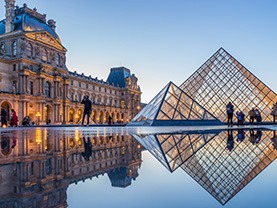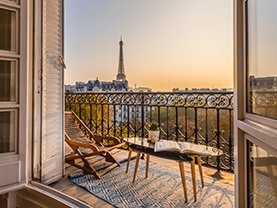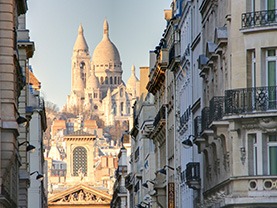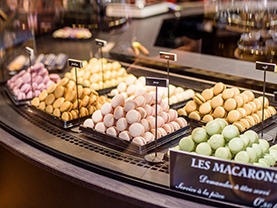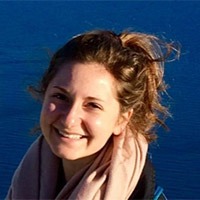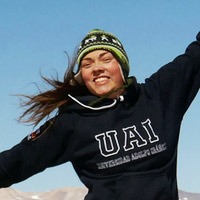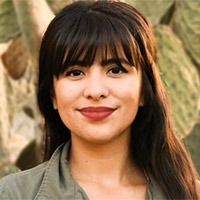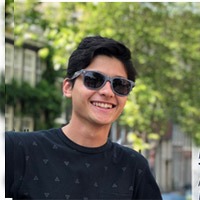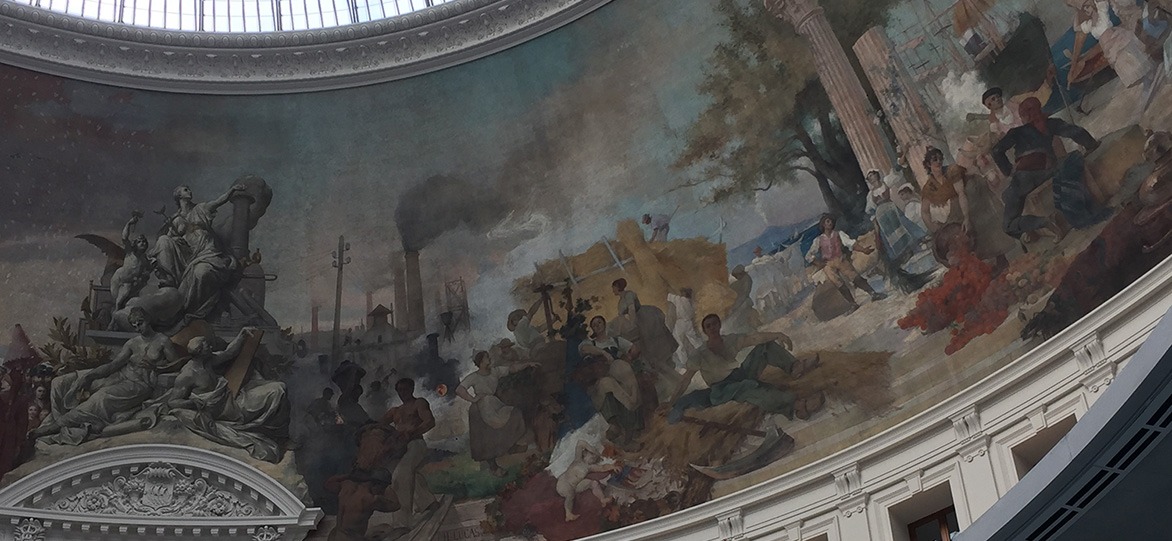
CAPLA Abroad - France
Paris, France
Program Facts
Program Type: UA Faculty-led
Credit Type: UA Direct Credit
Level of Study: Graduate , Undergraduate
GPA: 3.0
Class Eligibility: Junior , Senior
Language of Instruction: English
Program Open To: UA Students
Coordinator: Vasilis Kokkinos
Explore CAPLA Abroad - France
Summer 2024 Dates: May 20 - June 28 | Week 1, online. Start in Paris on May 26. End in Paris June 20 then online until June 28. Please do not purchase plane tickets until you have received instructions from Study Abroad.
Paris: empire + colony | diasporas + assemblies
The vibrancy and diversity of the city of Paris is a microcosm of France and its overseas departments and territories (DOM TOM). The peoples, lands and resources of the DOM TOM remain entangled with France as vestiges of former colonies, as do now-independent formerly colonies such as Algeria and Senegal. These regions have all provided France with a wealth of resources, materials, and cultural practices that are inseparable from what constitutes France and French culture today. However, while the world has long celebrated French culture, from cuisine to couture, art, architecture and public spaces of assembly, rarely do we interrogate from where they originate and how they came to be, nor do we question these from both aesthetic and ethical perspectives—particularly vis-à-vis colony.
This six-credit summer program dives deeply into these burning and timely questions.
CAPLA Abroad - France is open to students of all majors and minors who have completed the third year of their undergraduate program or are enrolled in a graduate program. CAPLA, BA DAP, and Applied Humanities are particularly encouraged to apply and will receive preferred acceptance to this program.
CAPLA Abroad - France is open to students of all majors and minors who have completed the third year of their undergraduate program or are enrolled in a graduate program. CAPLA, BA DAP, and Applied Humanities are particularly encouraged to apply and will receive preferred acceptance to this program.
Faculty: CAPLA Abroad - France is led by UArizona Associate Professor Dr. Beth Weinstein, PhD, RA, the Program Chair of Object and Spatial Design within the CFA’s and CAPLA’s Design Arts and Practices program.
Dr. Weinstein entered the Paris-based office of Jean Nouvel in 1992 as a junior architect and concluded her six-plus years as project architect on several projects in France and in Austria. In 2002, she founded the interdisciplinary practice Architecture Agency in NYC, and her practice primarily operates in a space between architecture and performance. The body of work created in the context of her doctoral research examined two forms of invisibility: invisible labor (in architecture) and razed spaces of internment. One of the case study spaces, the Centre d’Identification de Vincennes, was an internment camp used during the Algerian War period (1955-62) and was located in Paris’ Bois de Vincennes. This research has greatly impacted the focus of her teaching, her ongoing research and was the instigation for her Inclusive Leadership Cohort project—to rethink design pedagogy through the lens of decolonization.
Dr. Weinstein is a dual US-French citizen with fluency in French; she also speaks Spanish and Italian.
Coursework: Students will earn 6 units of UArizona direct credit for successful participation in this program. Each course will meet an average of three days a week and involve classroom instruction, workshops, tours, visits, and independent work time.
ARC471k/571k Paris: Spaces of empire, colony, and civic agency
School of Architecture History + Theory Stream and Urban Agency elective.
Meeting times: ±3 days / week
First week(s): seminar (online)
Four weeks in Paris and nearby cities: walking tours, site and office visits & workshop
Final week: workshop (online)
This course examines Paris’ urban transformation and the architecture of institutions and civic spaces through the lenses of empire, colony and civic agency. The growth of cities such as Paris are contingent upon surplus capital. As a city whose urban and architectural development is physically evident through the remains of former walls, Haussmannian cuts, its extant and defunct infrastructures, institutions and public spaces, Paris offers a palimpsest and on-going work in progress to observe how a diverse society spatializes and materializes its living, working and playing together. Our goal is to understand Paris’ cultural wealth as dependent upon a colonial continuum and to situate this in relation to contemporary debates and imagination of post-colonial and resilient futures.
During the course we will read and discuss pertinent theoretical texts about the city, its architecture, public and institutional spaces as well as (post)colony and spatial agency. Through walking tours and site visits that introduce students to locals—commissioners, practitioners, and thinkers—students will gain embodied understanding of the urbanisms and architectures of past regimes in dialogue with the contemporary city and its contested spaces. Each week is organized around a specific theme, relating texts to excursions. Students will reflect upon and explore relations between space, place, (post/colonial) power and peoples through writing and other media. For instance, students may map (through text/drawing/ other media) a transect of the city to reveal physical traces of urban transformation, colonial networks, and civic action.
Objectives:
- Understand urban and architectural transformations of Paris.
- Ability to relate these urban and architectural histories to socio-political, cultural and (post)colonial theories.
- Ability to conduct field research on and analyze specific spaces and places through architectural and other methods.
Outcomes:
- Read pertinent histories/theories about the city, its architecture, public and institutional spaces as well as (post)colony and spatial agency
- Gain embodied understanding of the urbanism and architectures of past regimes in dialogue with city’s contemporary spaces.
- Convey relations between space, place, (post/colonial) power and peoples through writing and other media.
ARC497b/597b: Detail
School of Architecture Technology Stream and Tectonic Inquiry R&I elective.
Meeting times: ±3 days / week
First week(s): seminar (online)
Four weeks in Paris and nearby cities: collections, studios/site of production & workshop
Final week: workshop (online)
This course examines the production of designed things: from fabric and furniture to garments and building components. Where do the materials, tools, technologies, and techniques come from? How are these inseparable from former colonies and at the same time integral to French cultural identity. Two weeks of preparatory seminars set the stage for our on-site field work. In Paris, each week will include field trips to collections, sites of production, and/or design firms to explore in detail the details of their craft. Each week’s schedule allots time for independent work and workshop time for students to review and curate a visual essay of details. The visual essays will inform the final project, to be completed during the week after the conclusion of the Paris trip—making exploratory (2D/3D/4D) assemblages that build out from the artisanally / industrially crafted details observed and documented during the course.
Objectives:
- Gain understanding of traditional and contemporary modes of production and detailed material assemblies.
- Develop awareness of materials and modes of production in relation to socio-political and particularly post-colonial contexts.
- Ability to apply techniques observed to a creative project.
Outcomes:
- Read about traditions and innovations in French architectural and design material production in relation to local regions and distant colonies.
- Document and curate documentation of materials and practices observed.
- Creatively reflect on examples observed through 2D and 3D media.
Scholarships:
Arizona International scholarships:
Departmental scholarships:
- Check your department's and college's websites for scholarship opportunities, or ask your academic advisor!
- School of Natural Resources & the Environment scholarships
- SILLC Global Award Fund
- Honors College study abroad scholarships
External scholarships:
- Gilman Scholarship (for Pell Grant recipients)
- Fund for Education Abroad
Location: Paris, France
Learn more about Paris here!
CAPLA Abroad - France will also include excursions to:
Good To Know
LGBTQ+ Equality Index rating: France rates 77/100 (with 100 being the most equal) on Equaldex’s LGBTQ+ Equality Index.
Global Peace Index rating: France ranks 67/163 in the Global Peace Index. The lower the score, the more peaceful the country.
Language Spoken: French
Housing:
TBD
CAPLA Abroad - France participants will have the opportunity to visit countless valuable and significant sites and spaces throughout Paris and wider region during the four weeks spent in France, including museums, contemporary design, architecture and urban design practices (Nouvel, Piano, Tane, Decq, Mesarchitectures, etc.), gardens, and iconic neighborhoods.
Excursions within Paris and its outskirts will include visits to the following cultural institutions:
- Louvre Museum
- Musée de l’Homme
- Musée de l’histoire de l’immigration
- Fondation Louis Vuitton
- Palais de Tokyo
- MAC VAL
- Centre National de la Danse
- Cité d’Architecture et Patrimoine
- Musée National des Arts et Metiers
- Musée des Arts Decoratifs
- Arab World Institute
- Centre Pompidou
- Waterways and infrastructures (Seine, canals, Petite Ceinture, coulée verte, Abbatoires de la Villette), and institutions (Bibliotheque Nationale, Bourse de Commerce/Pinnault Foundation)
- Public squares (Arenes, Place des Vosges, Place de la Bastille, Place Concorde, Place de la République)
CAPLA Abroad – France will also include excursions to key locations outside of Paris (such as Versailles) and major French cities: Orleans, Nantes, Bordeaux, and Lyon.
Request More Information
Please enter your contact information and a member of the Study Abroad team will contact you.



